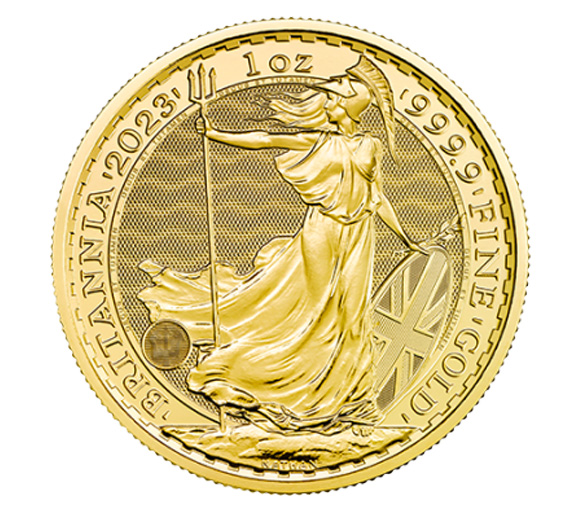The Symbol of Britannia

The symbol of Britannia has graced British gold coins and indeed most other forms of coinage into antiquity. The symbol is understood to be the female personification of the main island of the United Kingdom.
The name Britannia also yielded the name for the island in most European and various other languages, including English word Britain and the modern Welsh name Prydain.
Following the Acts of Union in 1707, the warlike vision of Britannia was used as an emblem of British maritime power and unity, most notably in the song "Rule, Britannia!".
Britannia on coinage
The symbol was first noted around 1900 years ago during the period of Roman rule of the UK. The first Britannia coins were struck in around 100 AD. She came to be personified as a goddess, armed with a trident and shield and wearing a Corinthian helmet.
The image fell out of use but was resurrected in 1672 for use on the farthing and then as the halfpenny in 1673. Its usage has ebbed and flowed over the intervening years.
The image of Britannia is currently in use on some production runs of the £2 coins as well as on the 24-carat gold Britannia Coin from the Royal Mint.
Other usages of Britannia
The term Britannia is a term used in many ways connected to the military, sailing and banking. There have been 6 ships of the Royal Navy that have used the name, including the HMY Britannia which was the current monarch’s personal yacht.
The navy also used the name for its Naval College at Dartmouth.
The name was also used for the name of a number of now defunct companies including the Britannia Building Society and Britannia Airways.
The Britannia gold bullion coin
The Britannia range of British gold coins contain one troy ounce of gold and have a face value of £100. Gold Britannia also are issued in fractional sizes of one-half, one-quarter, and one-tenth of a troy ounce and with face values of £50, £25, and £10 respectively. In 2013 two additional sizes were introduced, a five-ounce coin of face value £500, and a fractional size of one-twentieth of face value £5.















